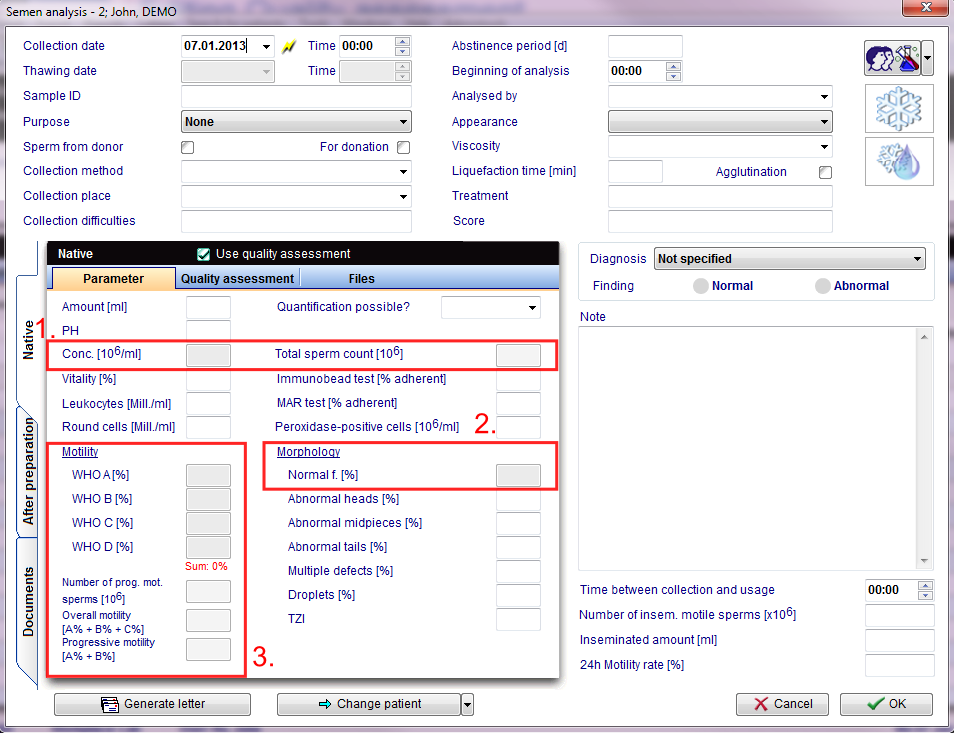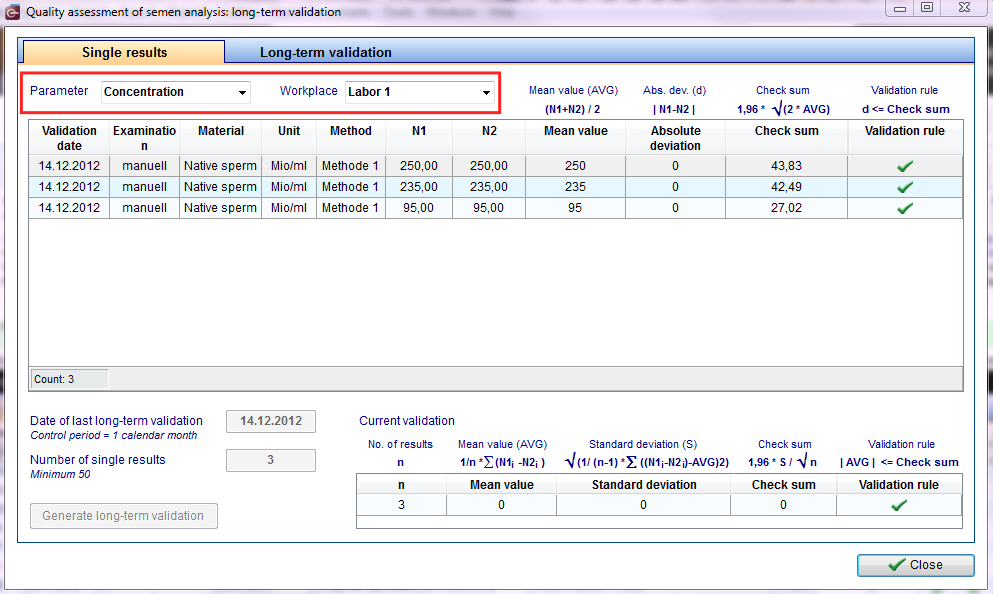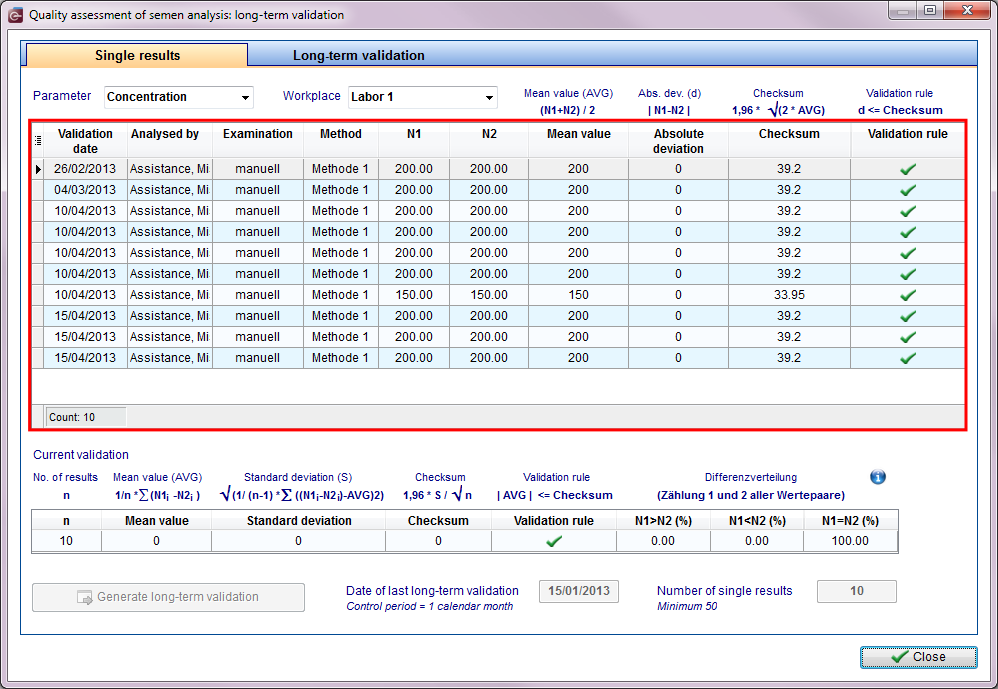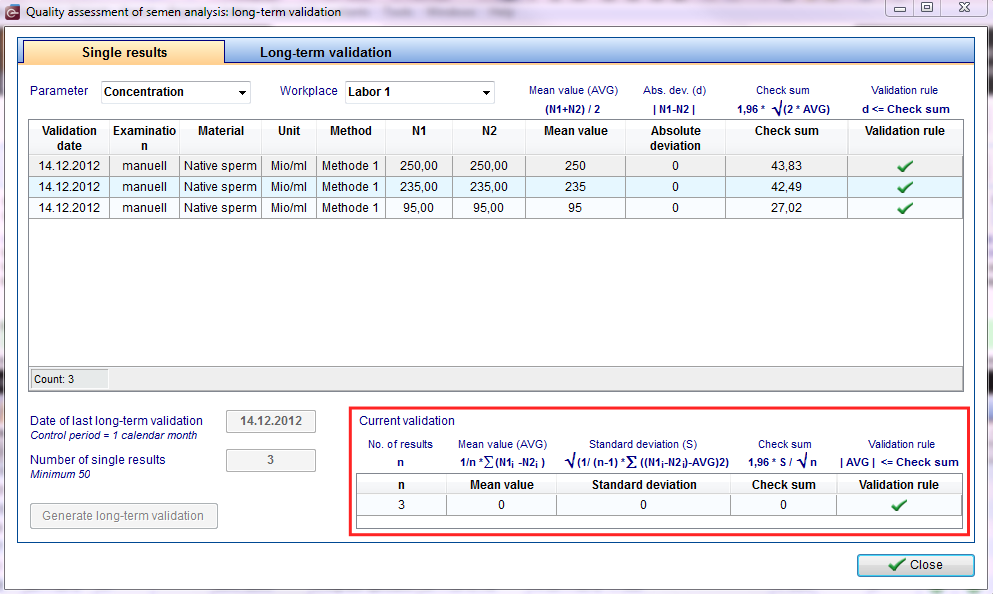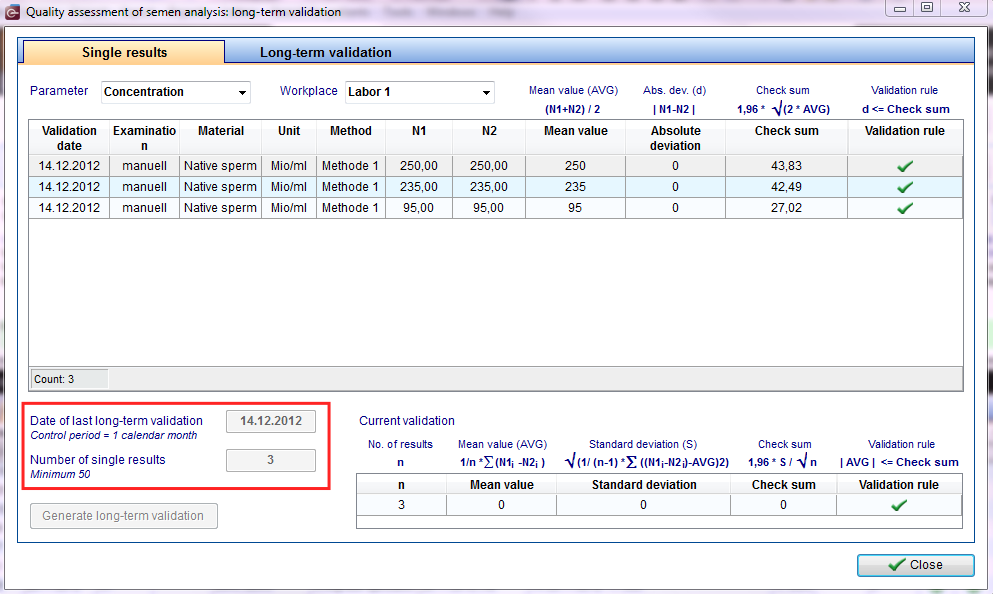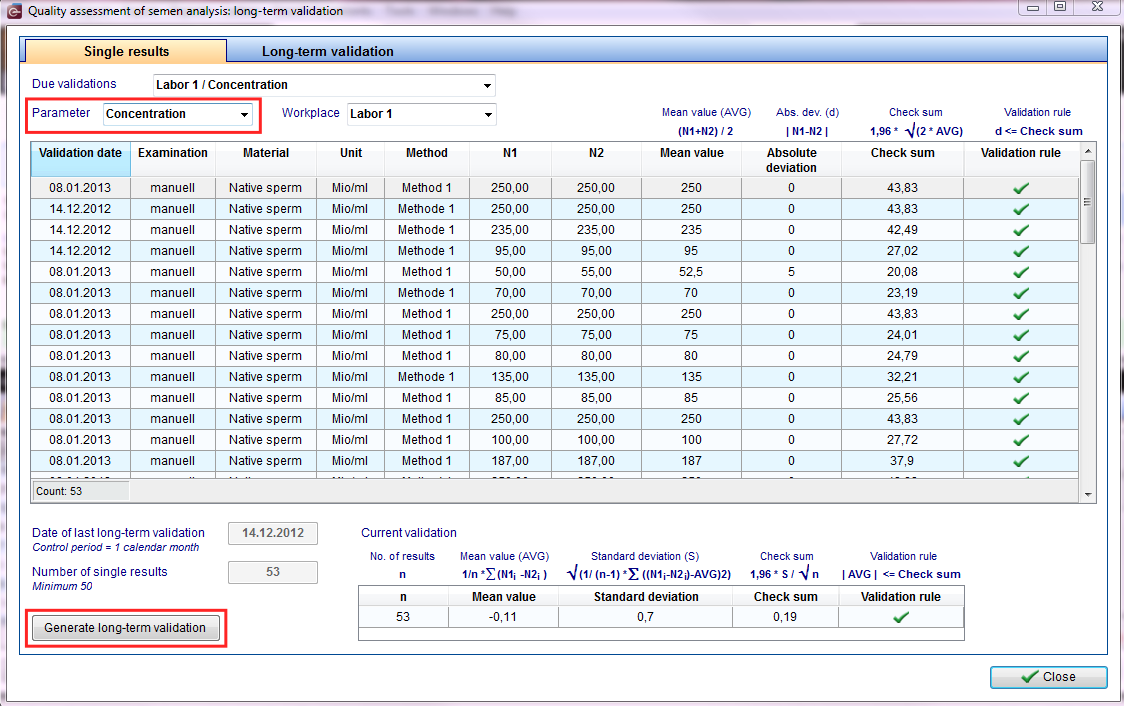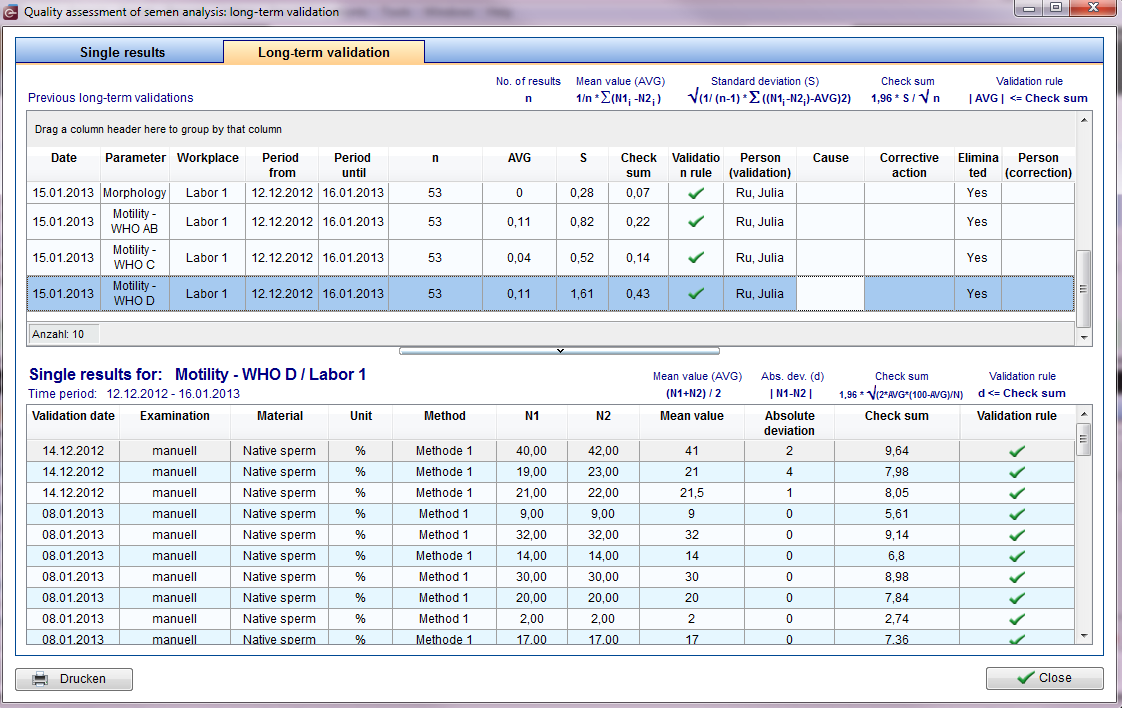Quality assessment
From MedITEX - Wiki
Click here to read the German version of "RiliBÄK".
Contents |
Quality assessment settings
Before using Quality assessment, check the basic parameters in the settings of MedITEX IVF.
 |
- You can access the settings from the menu System -> Configuration / administration -> Settings on the top of the window.
- Go to System -> Functions -> Semen analysis and check "Activate / deactivate Quality assessment".
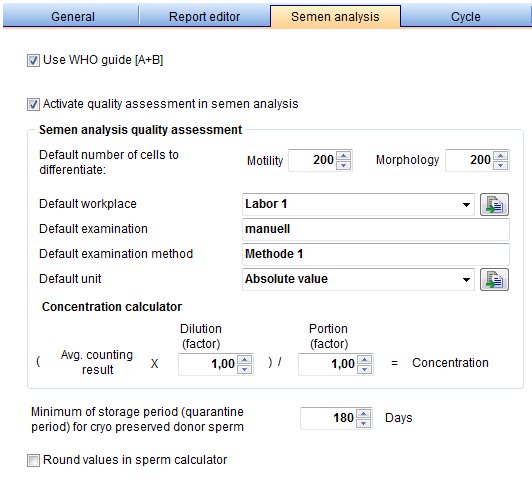 |
As number of differentiating cells for motility and morphology by default 200 sperm are set. This number is the minimum value that is to be counted according to the directive per sperm count.
Also the specification of the workplace, the examination and the method should be entered here. The data will be automatically transferred to your Quality assessment entry screen.
The dilution or enrichment of the ejaculate and / or the number of the counting fields must be selected in accordance with an orienting preliminary examination. If the sperm concentration is less than 1-2 sperm per high power field (objective magnification 40-fold), the sample should be enriched. Finds then less than 200 sperm per counting grid of the counting chamber, eliminates the requirement of at least 2 x 200 to be counted spermatozoa.
These settings will be loaded on every Quality assessment calculation as default values and can be edited in addition, depending on the special case.
Using Quality assessment
The Quality assessment functionality is used when conducting a Semen analysis. From a male patient window, select Lab. diagnosis. From the new window, click on New sample and choose Semen analysis.
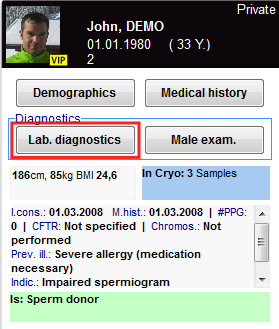 |
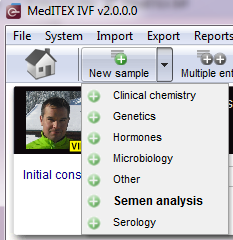 |
Examinations can be conducted either manually or automatically (CASA = Sperm class analyzer).
The examination of sperms in a counting chamber is separated according to
- Concentration (number),
- Morphology (normal or abnormal percentage)
- Motility (movement in 3 stages: progressive movement, locally movable immotile percentage)
These are performed in duplicate determinations then evaluated and documented.
If you check the box Use quality assessment, the Concentration, Motility and Morphology fields will not be able to be entered on this window. This method requires a new way for the calculation.
Switch to the Quality assessment tab to input the data.
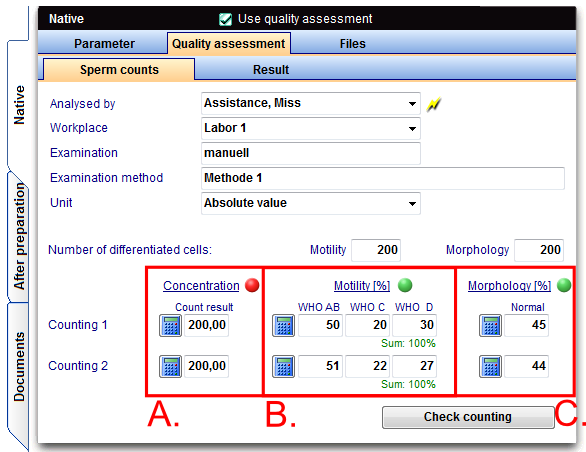 |
The examinations are independent and may change according to the parameters. They can also be evaluated separately.
Examining the concentration
Switch to the tab Quality assessment -> Sperm counts.
In order to calculate the concentration, folow these steps:
- Fill the counting chamber with the sample;
- The two halves of counting chambers are examined separately. Each one accounts for a separate analysis: number 1 and number 2.
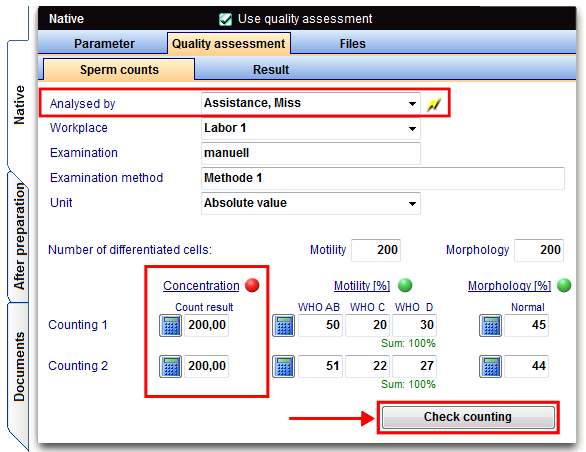 |
|
Exemaning the motility and morphology
When using quality assessment, at least 400 sperms need to be counted. 200 from the first chamber and another 200 for the second. If the number of sperms are less than 200, the counting may proceed with a smaller quantity.
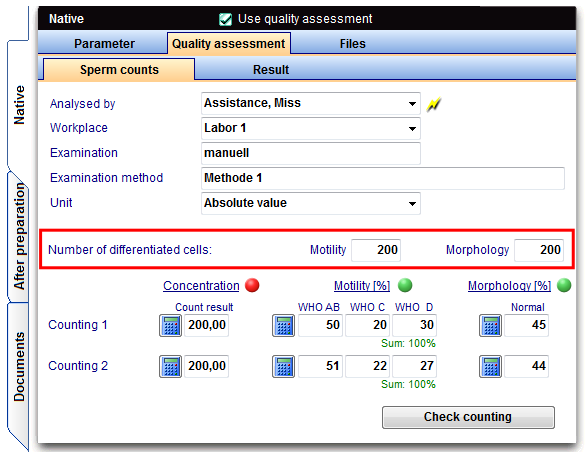 |
Motility
The examination carried on the sperm, identifies its motility: progressive motile, locally motile and immotile .
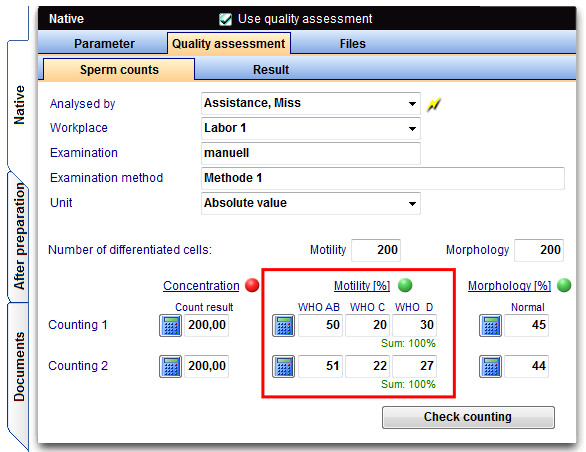 |
Note: for Germany, the values of WHO A and WHO B must be calculated separately according to the DIR regulations!
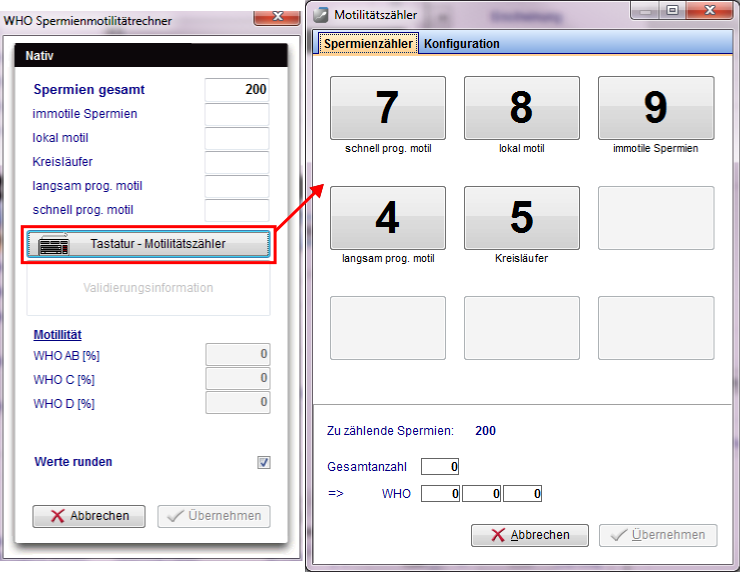 |
In order to make this process faster, MedITEX IVF offers the WHO sperm calculator and the Motility counter.
To learn more about the Motility counter , click here.
Morphology
The examination of sperm morphology needs to be carried out for both analysis.
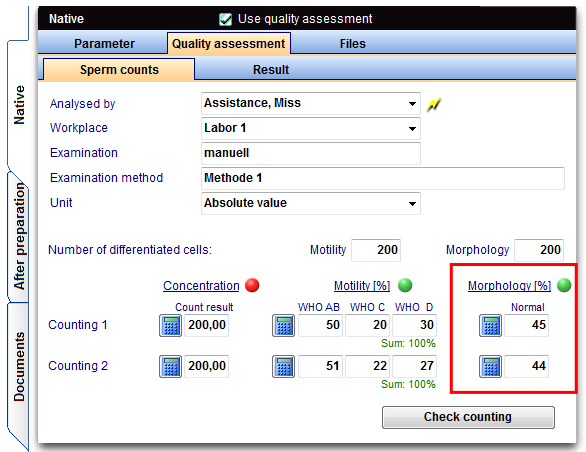 |
Documentation
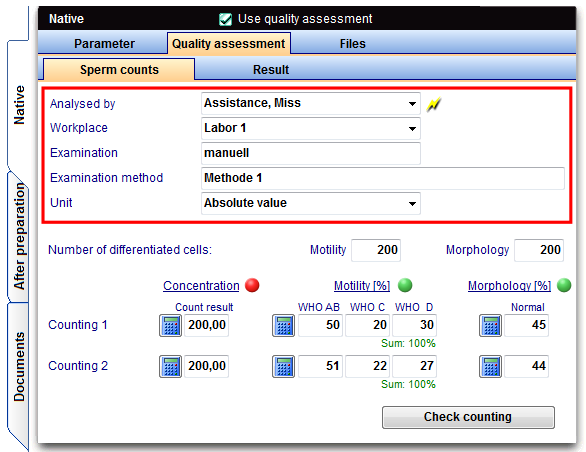 |
|
The content of the documentation provided (excerpt):
|
Result
For each duplicate determination the evaluation of results have to be made immediately after the completion of investigations.
Please open the second tab "Result", which is located right next to the tab "Sperm counts".
Result of the sperm concentration
Parameters: number of sperm in the two count chambers of the duplicate determination.
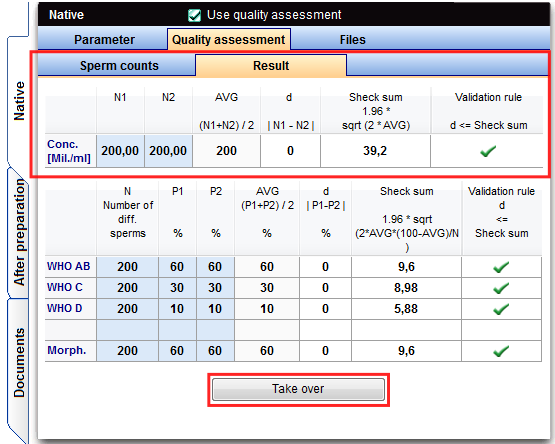 |
|
|
|
 |
If the difference is greater than the formula value, the release can not be effected. The count have to carried out again. |
Result of the sperm motility
Each type of sperm (WHO AB, C WHO, WHO D) has to be evaluated.
Parameters: percentage P1 and P2 of one type, first and second counting.
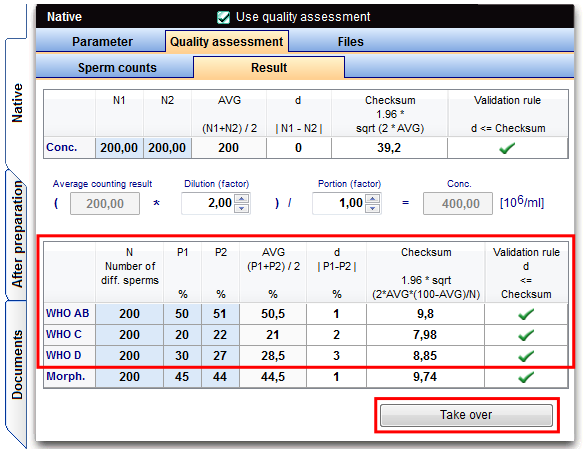 |
|
Assessment: d ≤ 1,96 * sqrt( 2 * MW * (100-MW) : N ) |
|
 |
If the difference is greater than the formula value, the release can not be effected. The count have to carried out again. |
Result of the motility
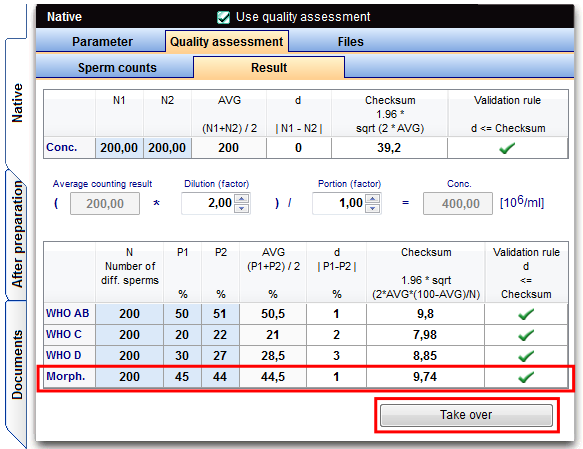 |
|
Assessment: d ≤ 1,96 * sqrt( 2 * MW * (100-MW) : N ) |
|
 |
If the difference is greater than the formula value, the release can not be effected. The count have to carried out again. |
Semen analysis quality assessment
Exist more than 50 shared value pairs, after a control period (= 1 calendar month), or - if this number is not reached - when 50 pairs be achieved, a long-term validation by calculating and evaluating the mean (including standard deviation) have to be made of the duplicate determinations.
To do this, click Reports -> Semen analysis quality assessment
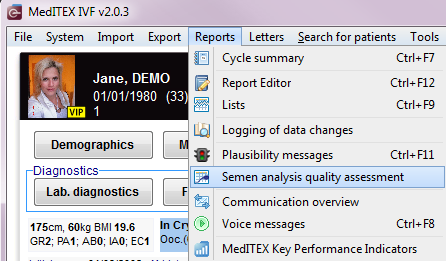 |
Long-term validation preparation
All results of the internal quality assurance are documented separately by parameter and workplace.
|
First Step: Select parameter and workplace Parameters:
It can be displayed only a single quantity! |
All results of internal quality assessment have to be documented separately by parameter and workplace.
Second Step: evaluation of all duplicate determinations
|
All results of internal quality assessment have to be documented separately by parameter and workplace.
| Third Step: flowing assessment/ current assessment n = number of pairs of values (immediately reviews) d = difference of the value pairs MWd = mean deviation = 1: n * Sum (d) Sd = standard deviation of the difference = sqrt (1: (n-1) * Sum ([d MWd] 2)) Assessment: MWd ≤ 1.96 * sd: sqrt (n) |
|
Fourth Step: control period / 50 value pairs |
All results of internal quality assessment have to be documented separately by parameter and workplace.
| Fifth Step: Long-term validation (for the period evaluated single results) The long-term validation is to be performed individually for each parameter! |
Is the mean value of the difference greater than the formula value, may no results be issued, until the cause is cleared and removed. The process must be documented. The fields cause, corrective action, eliminated and person (correction) need to be completed. Is this not the case, "information messages" remember on it.
| In the upper half of the window you see per line the results of the long-term validation of one parameter or a workplace. Below there is a list of the single duplicate determinations. The associated semen analysis can be viewed by "double-click" or "right-click". |
| Back to the MedITEX IVF menu | Back to top |
